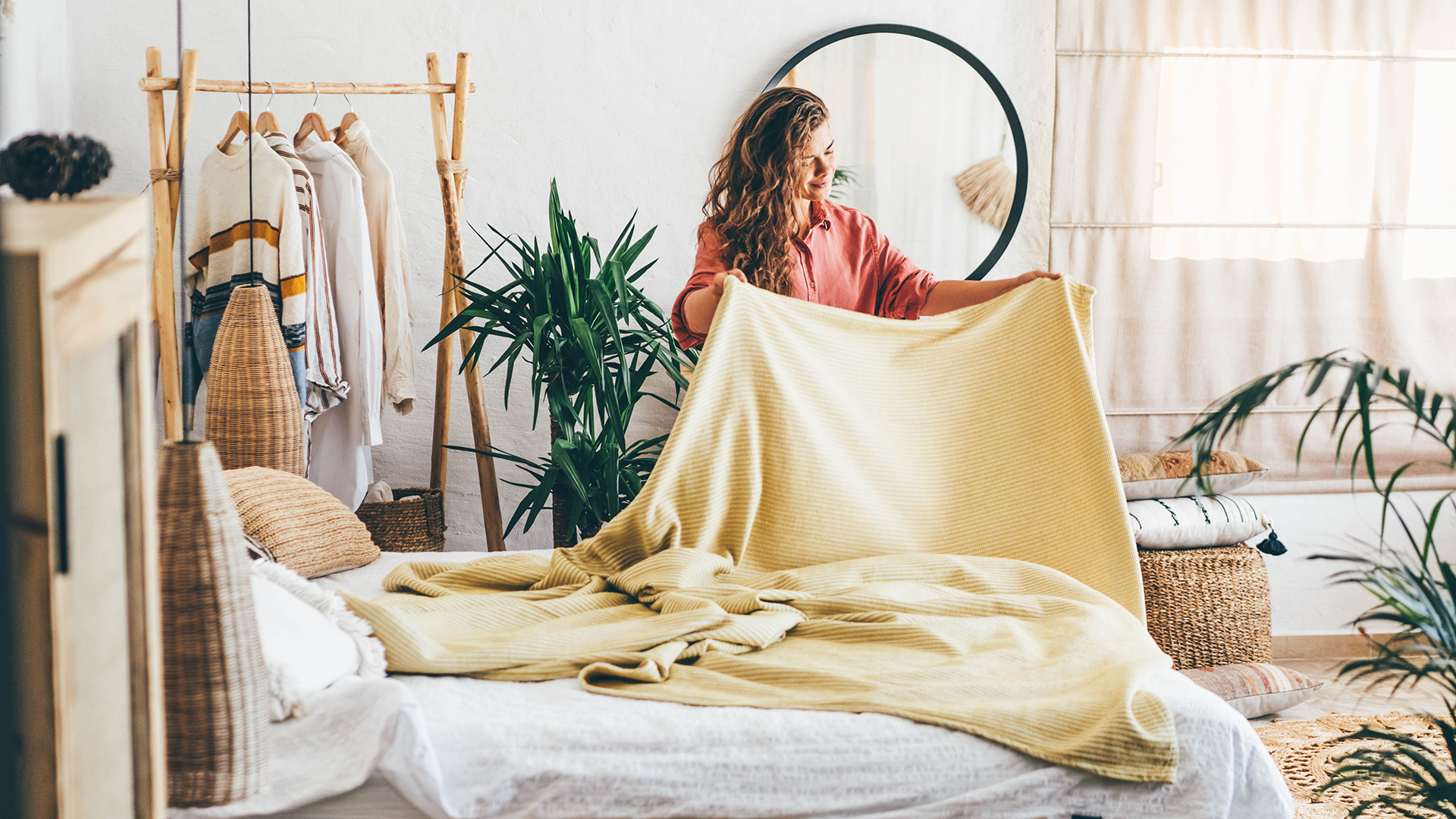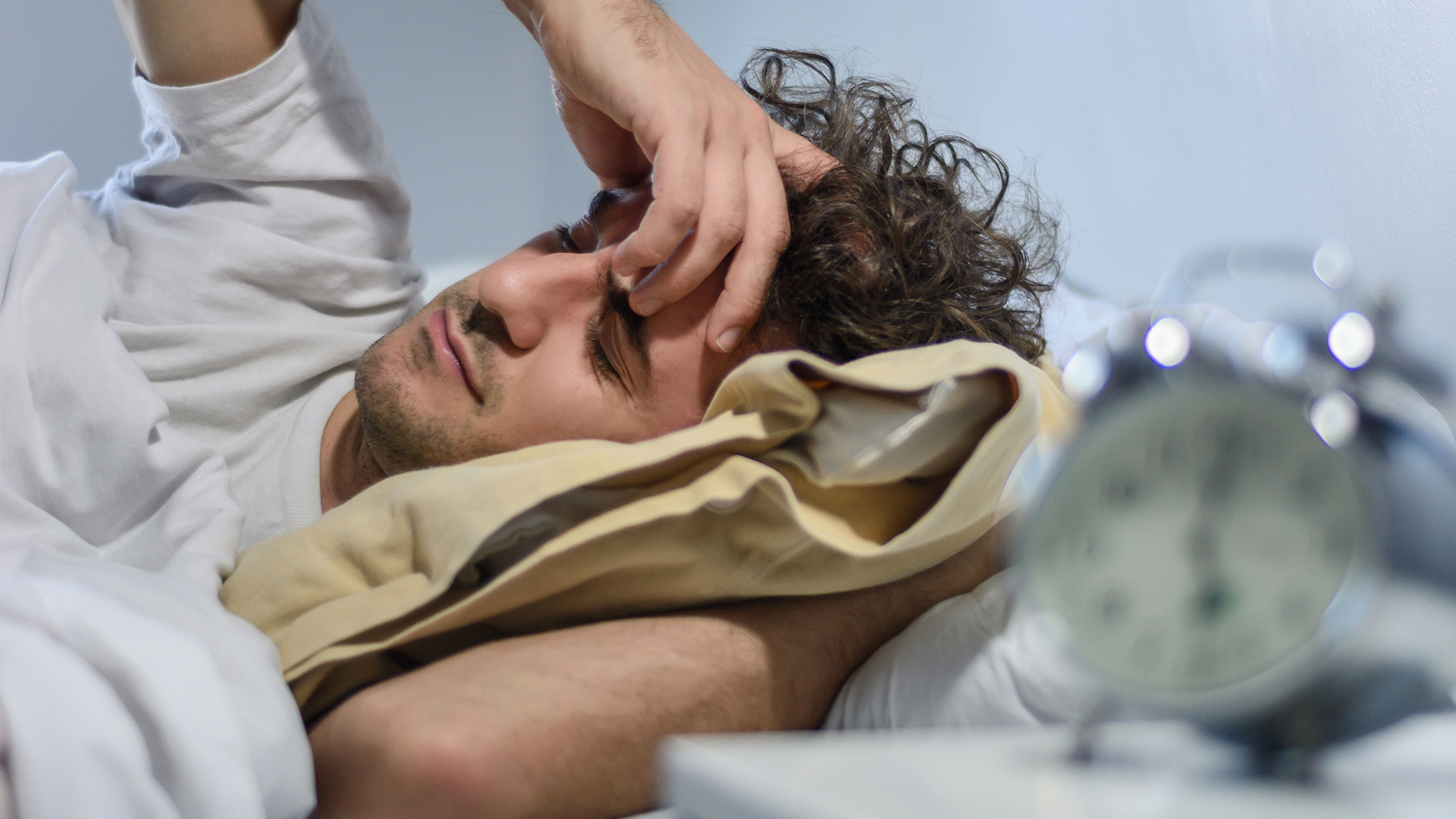Do you really need to make your bed everyday? We asked an expert, and the answer is yes… and no
Let your mattress breathe, but neat sheets might aid sleep

It turns out it isn't just teenagers singing the praises of an unmade bed. Even bedding experts agree. We spoke to Lydia Lloyd, Homeware Textiles Designer at M&S Home, who suggested that there are benefits to taking a more relaxed approach to making your bed in the morning. At least, if you want to prioritize the health of your mattress.
“While it can be tempting to make your bed straight away, it’s recommended to let your mattress and bedding breathe in between use,” explains Lydia. “This helps to reduce the chance of dust mites.”
So – we shouldn't be making the bed? Actually, the answer might not be so clear-cut. Not making your bed might benefit your best mattress, but your sleep won’t thank you, as studies show we tend to rest better in a ready-made bed. Who knew making the bed could be so complex?
Why you shouldn't make the bed right away
Even the best cooling mattress can't keep us from sweating in the night, at least a little bit. Most of us only lose a small amount of fluid in our sleep, but things like a warm night, spicy food before bed, or a few glass of wine can all lead to a more pronounced case of night sweats. This sweat then becomes trapped, and when we make the bed in the morning, it sinks into the sheets and mattress as moisture.
And it turns out, dust mites love this. Dust mites need moisture to live and they thrive in high-humidity areas – which is what your mattress can become if it isn’t given a chance to breathe.

“To let the bed air, throw your duvet back for half an hour each morning so that any moisture or natural build-up of allergens disperse,” advises Lydia.
That 30 minutes gives fresh air a chance to circulate around the bed, so make sure the mattress is properly exposed. Don't leave your sheets screwed up in a ball, take a moment to fold back the sheets if you really want this technique to work.
Sign up for breaking news, reviews, opinion, top tech deals, and more.
... and why you should make your bed anyway
Once you’ve given your mattress a chance to air, it is better to make your bed than leave it a mess. A National Sleep Foundation survey found making your bed can improve the quality of your sleep, while participants in another study largely agreed that making the bed increased feelings of productivity in the morning.
Decluttering can help you sleep by removing stress, and that starts with your mattress. Plus, when confronted with crisp, neat sheets, you're probably less likely to spend the day bed rotting (aka lying in bed and doing nothing). And if you're trying the Scandinavian sleep method – when a couple shares a bed but has separate bedding – making your bed properly might prevent some arguments about which sheets belong to who.
But most important of all: wash your sheets

Whether you're proud of your hospital corners or happy to take a more relaxed approach to bed making, there’s one thing we should all be doing: washing our sheets. “Change and wash your bedsheets weekly on a hot wash over 60 degrees (Celsius) to kill any bacteria,” says Lydia.
And it isn't just your sheets you should be cleaning. "To keep your mattress fresh, clean it every six months," explains Lydia. To get you started, check out our guide on 'how to clean a mattress'.

Ruth is TechRadar’s Sleep Writer. She’s here to help you find the perfect sleep setup for your budget and personal preferences. As well as keeping a keen eye on everything that’s going on in the world of mattresses, she regularly speaks to experts to help you learn how to improve your sleep habits, whether that’s by debunking sleep myths or explaining the science behind it all. Prior to joining the TechRadar team, she wrote features and product guides for new parents hoping to get a decent night's sleep, as well as writing for a variety of online spaces.